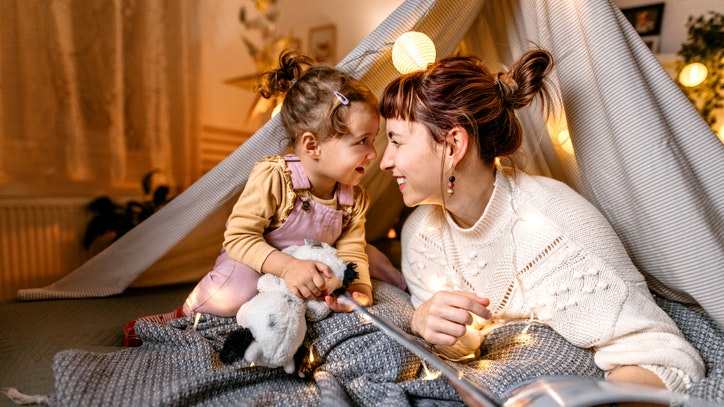From tigers to helicopters and jellyfish, it appears that each day brings a new parenting trend circulating on social media. It’s truly a jungle out there. One of the latest buzz phrases gaining traction is ‘benign neglect’, inspired by Jennifer Garner’s parenting approach towards her three children, Violet (17), Seraphina (14), and Samuel (11), as revealed on Today.
When discussing her parenting style, Garner expressed, ‘I don’t have a specific overarching philosophy. I just find my children fascinating and want to be present to listen to them. However, I also believe it’s acceptable for them to experience a degree of benign neglect.’
Navigating through these terms can be perplexing for parents. In the midst of daily challenges like the morning rush to get to school on time or the bedtime struggles, most parents are merely trying to navigate through parenthood without any specialized labels like ‘lawnmower skills’ or ‘free-range parenting’ in mind. The reality is that different parenting scenarios demand varying approaches, making parents switch between roles such as a ‘lawnmower parent’ tidying up rooms and a ‘free-range parent’ at the playground.
Georgina Sturmer, a certified counselor and member of the British Association for Counselling and Psychotherapy (BACP), highlights the influence of external messages and judgments on parenting decisions. She emphasizes the importance of negotiation and compromise with partners or other caregivers involved in the parenting process. Sturmer acknowledges that external factors may sometimes lead parents to deviate from their ideal parenting philosophy due to time and energy constraints.
For a deeper understanding of the prevailing parenting styles dominating the internet, insights from experts shed light on each category…
The Original Parenting Styles:
Back in the 1960s, developmental psychologist Diana Baumrind identified three primary parenting styles – permissive, authoritative, and authoritarian. A fourth style, uninvolved parenting, was later introduced in the 1980s by Stanford researchers Eleanor Maccoby and John Martin. While interpretations may vary, here is a general overview of each style:
Permissive Parenting:
Permissive parents exhibit warmth, empathy, and love in their parenting approach but often struggle to establish boundaries for their children. This leniency can manifest as a consistent lack of rules or structure in a child’s daily routine.
Authoritative Parenting:
In contrast, authoritative parents set clear boundaries for their children while providing nurturing and support. They offer guidance and assistance to help children meet these boundaries, fostering a balanced approach.
Authoritarian Parenting:
Authoritarian parenting leans towards strictness, with high expectations and an emphasis on rule adherence. This approach allows minimal room for flexibility or discussion, promoting discipline through a ‘tough love’ stance.
Uninvolved Parenting:
Also known as neglectful parenting, this style involves fulfilling basic needs like food and shelter while maintaining emotional distance and offering minimal support or supervision.
Contemporary Parenting Styles:
Following Baumrind’s foundational work, a plethora of modern parenting terms have emerged in recent years, encapsulating diverse approaches to child-rearing. From ‘tiger parents’ to ‘helicopter parents,’ here are some key terms in the parenting lexicon:
Helicopter Parenting:
Helicopter parenting, a popular style on social media, involves constant supervision and intervention in a child’s activities. This vigilant approach, akin to a hovering helicopter, often stems from a parent’s desire to ensure their child’s safety and success.
Lawnmower Parenting:
Contrasting with the hovering nature of helicopter parents, lawnmower parents proactively remove obstacles from their child’s path. While well-intentioned, this approach may hinder a child’s development of essential life skills and resilience.
Tiger Parenting:
Originating from Amy Chua’s controversial book, tiger parenting emphasizes strictness and academic achievement. While proponents argue that it fosters motivation and responsibility, critics caution against its potential negative impact on a child’s autonomy and well-being.
Egg Shell Parenting:
Coined by clinical psychologist Dr. Kim Sage, egg shell parenting creates an environment where children feel the need to tread carefully to avoid triggering parental emotions. This style can lead to feelings of instability and insecurity in children.
Free Range Parenting:
In line with the concept of free-range children, free range parenting advocates for granting children independence and autonomy. This approach aims to nurture practical problem-solving skills and self-sufficiency while balancing emotional support.
Benign Neglect:
Akin to free-range parenting, benign neglect encourages children’s autonomy, creativity, and decision-making while maintaining certain boundaries. Unlike helicopter parenting’s constant supervision, benign neglect parents offer space for children to navigate challenges independently, intervening only when necessary.
Choosing an Effective Parenting Style:
While various parenting styles exist, there is no definitive manual for parenting. Experts often highlight authoritative parenting as a preferred approach, emphasizing a balance of warmth, boundaries, and support. A better quality of life and stronger self-esteem are traits associated with children reared by parents who are authoritative, according to the research. Parenting in a way that is consistent with your beliefs and adapted to your child’s specific requirements is, in the end, the most effective approach.
Alice Hall, a staff writer at Grazia UK, covers a range of topics including pop culture, dating, health, politics, and interiors. Previously, she served as a Junior Features Writer for The Daily Telegraph.

